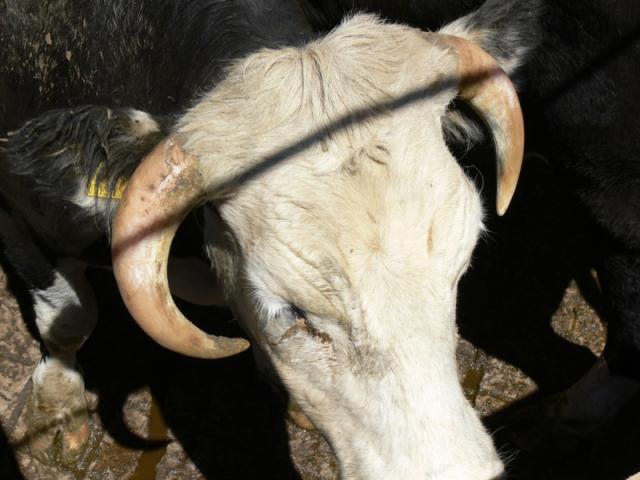Ensure livestock are fit for the journey

The Department of Primary Industries and Regional Development (DPIRD) is cautioning livestock agents, buyers and producers to ensure livestock being prepared for transport are fit to load.
Inspectors of the DPIRD Livestock Compliance Unit have recently dealt with incidents involving the transport of heavily pregnant animals, and an increase in the number of cattle and sheep arriving at saleyards with ingrown horns.
In these instances livestock are not fit to load.
Transporting animals in the late stages of pregnancy or recently born animals, where there is a risk of harm to the animal, is an offence under the Animal Welfare Act 2002.
Not knowing the animal was pregnant is not a defence. Agents, buyers and producers should be aware of the risk, and check each animal prior to transport.
Animals presented with an ingrown horn should also not be transported until they have had the horn trimmed and have recovered from any injuries as transporting animals in this condition could cause further suffering.
Ultimately, if there is any doubt about the condition of animals, they should not be accepted for transport.
Department inspectors have noticed an increased prevalence of ingrown horns during inspections at saleyards and abattoirs over the past few months.
Trimming the horns of cattle and sheep should be standard practice, particularly in animals where there is a risk of the horn becoming ingrown.
Trimming is a straight-forward procedure.
If left untreated, the horns could eventually penetrate the animal’s skull.
If the horn has penetrated the skull, it should be trimmed in accordance with the advice of a veterinarian, or the animal should be humanely euthanised.
Failing to trim the horn is a possible offence under the Animal Welfare Act 2002 and carries significant penalties.
Animal welfare codes of practice in WA have been prepared to assist producers to make decisions on issues such as transporting pregnant livestock, and how to trim horns without cutting into sensitive horn tissue.
The Model Code of Practice for the Welfare of Animals: Cattle and the Code of Practice for Sheep in Western Australia can be downloaded from our website.
The department is committed to providing leadership and improving animal welfare outcomes in WA.
The department administers the Animal Welfare Act, and ongoing monitoring and raising awareness of animal welfare legislation and standards is critical to achieving improved compliance with the Act.
Inspectors of the Livestock Compliance Unit play a vital role. At saleyards and other places where animals are brought together, inspectors carry out inspections and liaise with industry to educate and advise on animal welfare.
Inspectors can issue Direction Notices to keep any livestock unfit for transport at the saleyard for a specified period, which may mean agistment fees for the owner.
Inspectors may also initiate prosecutions for non-compliance.
Additional information about Animal Welfare is available on our website.
For more information contact Jodie Gysen, Client Engagement Leader, South Perth on +61 (0)8 9368 3194.
